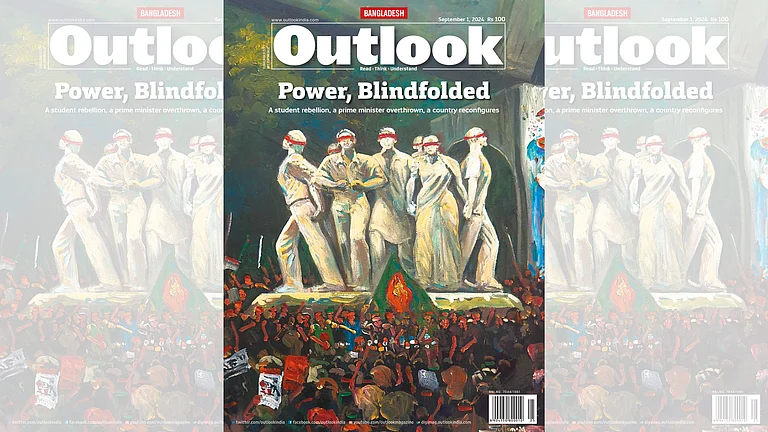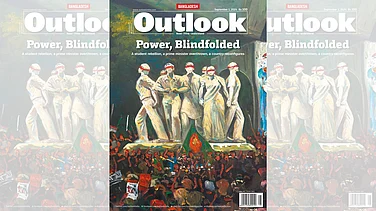New Zealand lawmakers and Parliamentary staff cannot use Chinese app TikTok on their official phones, said officials on Friday.
The New Zealand TikTok ban will come into effect at the end of the month. The ban follows similar bans in the United Kingdom, United States, and India.
In some countries, including in the United States, broader restrictions, regulations, and even a potential ban on TikTok are under consideration.
However, New Zealand's ban will apply only to about 500 people in the parliamentary complex, not to all government workers like bans in the United States and UK. Other New Zealand agencies could decide later to impose their own bans.
Here we explain what's TikTok, what are the concerns around it that are leading to such bans, and what the New Zealand government has said.
What's TikTok, how it works?
TikTok is a social media app owned and operated by Chinese company ByteDance. It's installed on mobile phones.
TikTok features 15-second videos along with chat and search functions that make emergence of trends and possibility of going viral high. It also allows for filters and music to be added to the videos. It became very popular primarily in young adults in several countries.
Considering TikTok's popularity, Facebook, Instagram, and YouTube also incorporated the short video format into their interface. While Meta-owned Facebook and Instagram call such videos Reels, YouTube calls them Shorts.
However, there are security concerns over TikTok. These concerns related to the design of the app as well as its Chinese ownerships.
Security concerns over TikTok
TikTok is owned by Chinese company ByteDance. Considering the fact there is a blurry line between state and public enterprise in China and there is no check and balance on the ruling Commuist Party of China's (CPC) powers, there are fears China could misuse TikTok as it competes with the United States and the West.
Global concern about TikTok come after warnings by US Federal Bureau of Investigation (FBI) and other agencies that ByteDance could share TikTok user data —such as browsing history, location and biometric identifiers— with China's authoritarian government.
Besides knowing user preferences and behaviour patterns of users as well as societies, TikTok collects lot of data, such as:
- All TikTok videos you watch
- All of your messages as messages are not encrypted
- Your country location, IP address, and device type
Cyber-security company Kaspersky notes TikTok also collects the following information with permission:
- Your exact location
- Your phone’s contacts and other social network connections
- Your age and phone number
- Payment information
While most social media platforms like Facebook and Instagram collect such data, there are key differences that raise concerns over TikTok. Firstly, unlike Meta-owned Instagram or WhatsApp, TikTok chats are not end-to-end encrypted. Second, Meta and others are based in free countries like the United States where there are checks and balances and where the government does not control private companies or accesses their data.
The potential access and misuse of US users' data by Chinese government is a concern. If Chinese government accesses US users' data, then it can study behaviour patterns and flood the platform with targeted content to influence US behaviour and even meddle elections just like Russia was accused of doing in 2016 presidential election that Donald Trump won.
Kaspersky notes that TikTok does not use two-factor authorisation which makes it vulnerable to cyber attacks.
"One of the less-discussed TikTok security issues is the absence of two-factor authentication...Single-factor authentication is not uncommon on social platforms. Coupled with a weak password, this creates a possible security issue as it can lead to phishing or ransomware attacks, among other threats. Many social media platforms now offer two-factor authentication," notes Kaspersky.
It is out of these fears of potential Chinese control and subsequent misuse of it by Chinese government that there are concerns over TikTok. Similar concerns don't exist for Facebook or Instagram as these are platforms based in free countries with robust rules and regulations and are not prone to state control. The same cannot be said about China where lines between private and state enterprises is blurry and there are no checks and balances on Communist Party's authority.
New Zealand government on TikTok ban
New Zealand Prime Minister Chris Hipkins said he didn't have TikTok on his phone.
He said, "I'm not that hip and trendy."
The New Zealand move came on the advice of government cybersecurity experts, said Parliamentary Service Chief Executive Rafael Gonzalez-Montero. He said the app would be removed from all devices with access to the parliamentary network, although officials could make special arrangements for anybody who needed TikTok to perform their democratic duties.
Gonzalez-Montero, "This decision has been made based on our own experts' analysis and following discussion with our colleagues across government and internationally...Based on this information, the service has determined that the risks are not acceptable in the current New Zealand parliamentary environment."
Hipkins said cybersecurity advice came from New Zealand's intelligence agency, the Government Communications Security Bureau. He said New Zealand didn't take a blanket approach to all government workers, and it would be up to each department or agency to make cybersecurity decisions.
(With AP inputs)


























